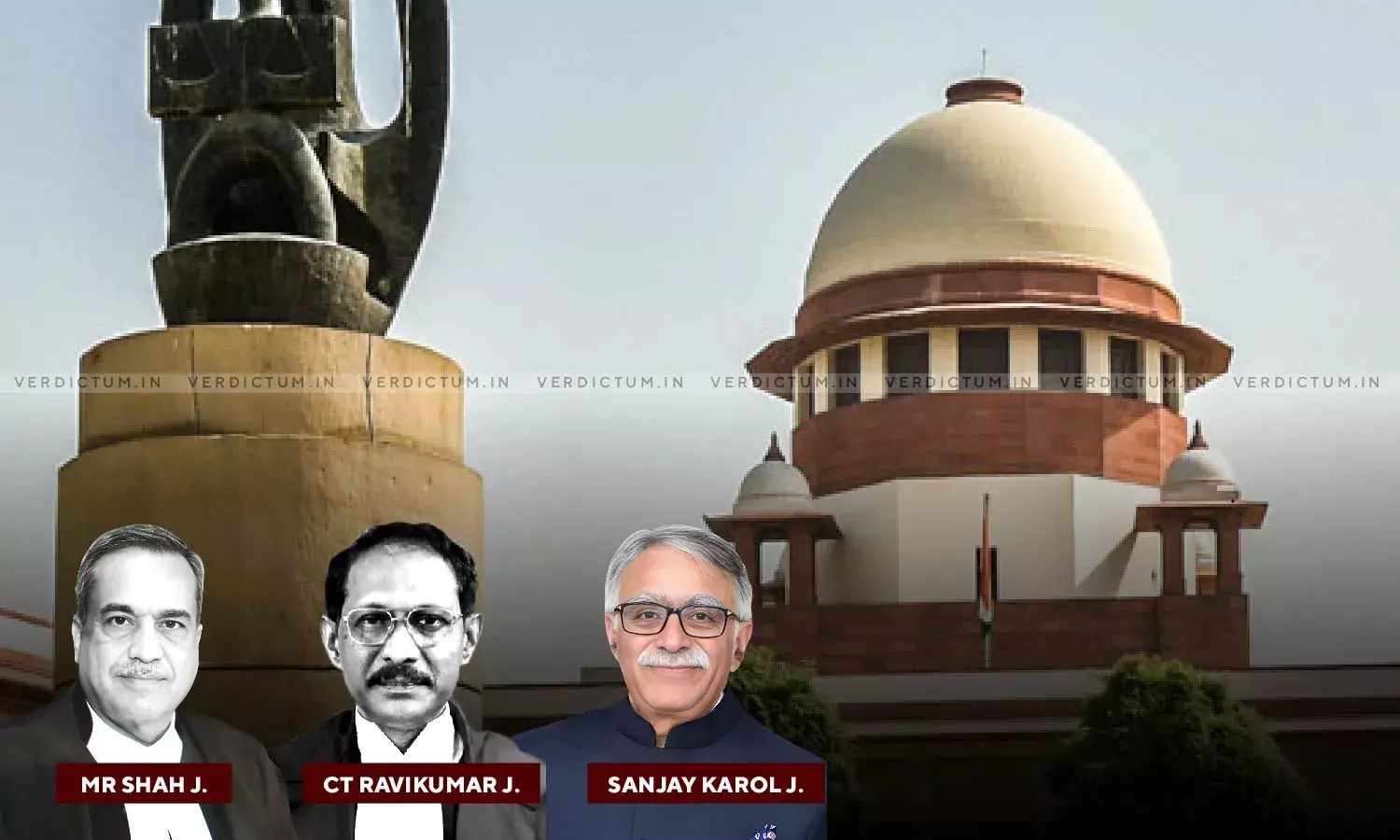SC Reserves Judgment On Whether Mere Membership Of Banned Group Would Make Person Criminal Under UAPA

The Supreme Court yesterday reserved its verdict on a batch of pleas including those seeking review of some verdicts of 2011 which had held that mere membership of a banned organisation will not make a person criminal unless he resorts to violence or incites people to violence. The apex court noted that the Union of India was not heard by its two judges-bench when the 2011 verdict was passed reading down section 3 (5) of Terrorist and Disruptive Activities (Prevention) Act, 1987 (now repealed).
The apex court on February 3, 2011, had acquitted suspected ULFA member Arup Bhuyan, who was held guilty by a TADA court on the basis of his alleged confessional statement before the Superintendent of Police, and said that mere membership of a banned organisation will not make a person a criminal unless he resorts to violence or incites people to violence or creates public disorder by violence or incitement to violence.
Similar views were taken by the apex court in two other verdicts of 2011 in Indra Das versus State of Assam and State of Kerala versus Raneef, where the bench relied upon the three US Supreme Court decisions which have rejected the doctrine of 'guilt by association'.
A bench of Justice MR Shah, Justice CT Ravikumar, and Justice Sanjay Karol, which was hearing a reference made by a two-judge bench to a larger bench said, "Arguments concluded. Judgment reserved. It will be open for the counsel appearing for the Union of India and State of Assam to submit short written submissions within a period of two days from today." During the hearing, the bench observed that the Centre needs to be heard and given an opportunity to put forward a case that this is what the intent of Parliament was.
"This is missing from the verdicts. This court had not said that the Union of India is not required to be heard in the matter," it said, adding that some representation has to be there. The bench told senior advocate Sanjay Parikh, appearing for the intervenor that there is the supremacy of the courts after Parliament enacted the law.
"Ultimately, it is for the court to review the law passed by the Parliament and to whether declare it as unconstitutional or constitutional but it is the right of the government to defend its laws from being declared unconstitutional," it said. Parikh pointed out that three verdicts of 2011 have been followed in 26 cases by the high courts.
The bench told Parikh that the high courts are bound to follow the laid down by this court unless that law is upset by the Supreme Court. "Therefore, merely because the high courts have followed the Supreme Court's decision cannot be a ground," the bench said.
On Wednesday, the apex court had raised a question over reading down a law unless its validity is challenged and said before reading down a central legislation, does the court not required to hear the Union of India.
Solicitor General Tushar Mehta, appearing for the Centre had submitted that it was imperative for the court to seek the views of the government when it is dealing with the provision of the law. He had pointed out that the impact of reading down the TADA provision is having its impact on similar provisions under the Unlawful Activities (Prevention) Act (UAPA), which prescribes punishment for being a member of the banned association. Mehta had said that reliance put on American court verdicts by this court in 2011 verdicts cannot be blindly imported.
He had further submitted that membership of an unlawful/banned organisation could be established if materials relating to the outfit are seized during investigation. Mehta had further said that 2011 verdicts were wrongly decided and "active membership" was not required to be proven over and above the membership of the banned group under the UAPA.
With PTI Inputs

